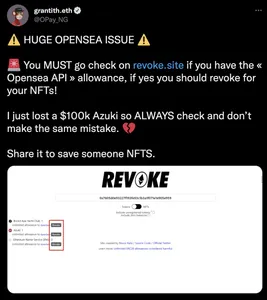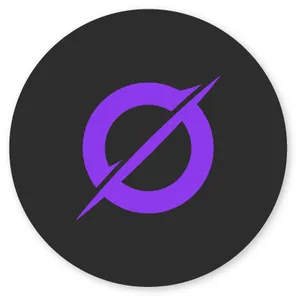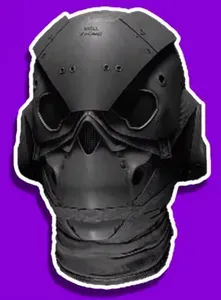A company called Gripnr is already working to line up NFT pre-sales, despite acknowledging that they have no idea how they will prevent fraudulent data input — an issue commonly known as the oracle problem. It's also unclear how they intend to change the game so that it's sufficiently different from the Wizards of the Coasts game that they will not face legal action (an issue that ended another crypto project planned to be based around a WotC game). We can only hope that none of this may last long enough to become an issue, given that Gripnr have come up with an idea that I can't imagine appealing to a single person who's ever played D&D.
Gripnr seeks to financialize your Dungeons & Dragons games
- "NFTs Are Here to Ruin D&D", Gizmodo
Legal action begins against developer who solicited investments to build an OpenSea competitor, then used it to fund his NFT trading
Meanwhile, Gaye used the project Twitter account to promote his own NFT collection. He also took the donated funds and used them to buy NFTs. When pressed on this in the project's Telegram chat, he wrote, "Im buying NFTs because its my ETH and thats what I wanted to do." After crypto scam investigator zachxbt wrote about Gaye's scams, Gaye threatened to "put him in the ground if we ever meet in person".
Gaye has spent almost 400 ETH on NFTs since beginning to collect donations for his project — equivalent to over $1 million. He has also sold NFTs for a total of around 315 ETH (roughly breaking even with the amount he spent on NFTs, if looking at the ETH prices at time of trade), and amassed a substantial number of NFTs he still holds.
Blockchain bridge for the WonderHero play-to-earn game is exploited
Starstream treasury drained of $4 million
Scammer creates a fake site to revoke wallet permissions, then pretends there is an OpenSea vulnerability to trick people into using it
 A tweet falsely claiming an OpenSea vulnerability, linking to a scam permission revocation website (attribution)
A tweet falsely claiming an OpenSea vulnerability, linking to a scam permission revocation website (attribution)- Scam wallet on Etherscan
- Tweet thread by 0xQuit
Star Trek gets into NFTs
- "First NFT Collection from Paramount Global and RECUR Partnership to Drop with Star Trek on April 9", press release on StarTrek.com
Ubisoft abandons Tom Clancy's Ghost Recon Breakpoint after shoehorning NFTs into it
Although the Formula 1 blockchain game that shut down earlier this month made halfhearted promises to allow NFT holders to swap their NFTs for ones used in a different game, Ubisoft has made no such promises.
Another $1 million lawsuit is filed against OpenSea for stolen apes
The language in the lawsuit is very similar to the stolen ape lawsuit filed February 18, which is not surprising because the plaintiffs are using some of the same lawyers. Vice interviewed one of the lawyers, and determined that the somewhat odd wording refers to the issue in which OpenSea users didn't realize their old listings of NFTs at lower prices were still active.









